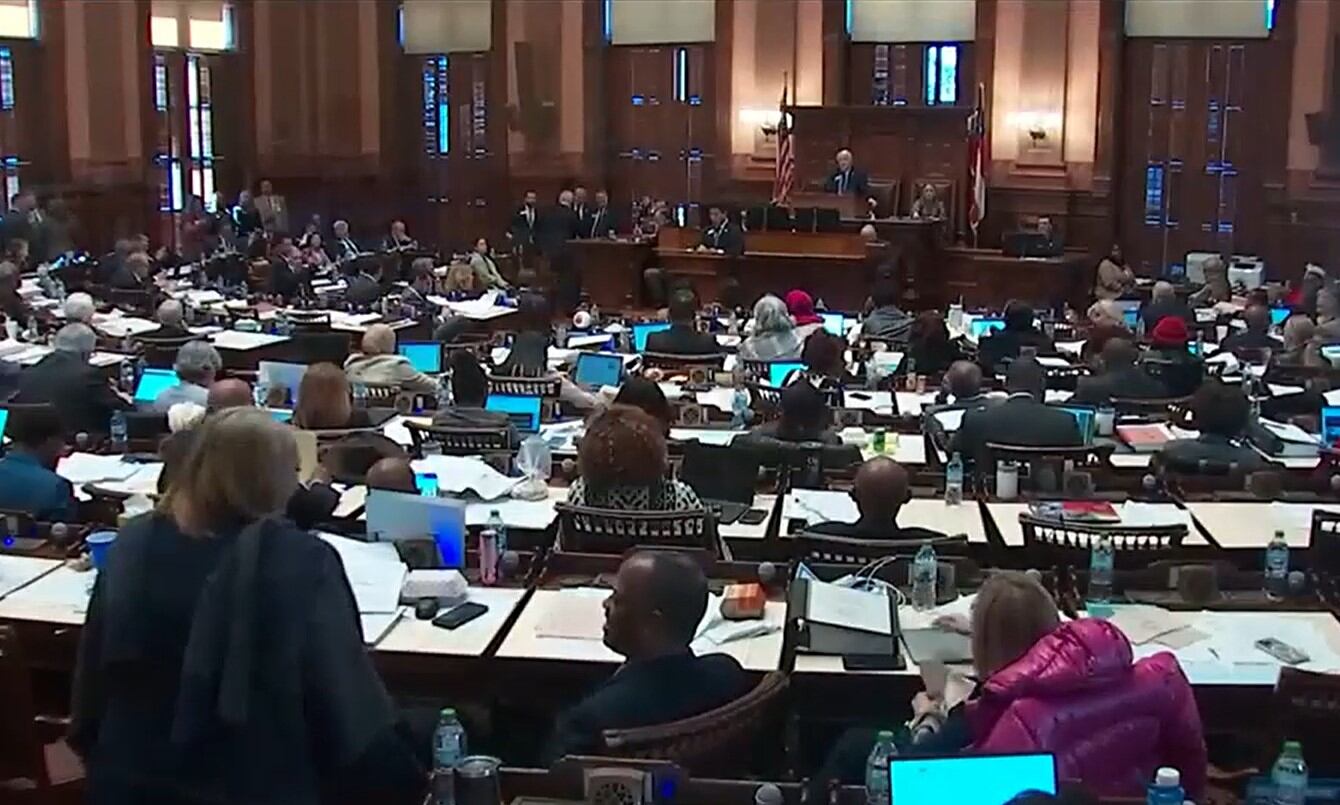More than half of S.C. income tax filers could soon pay more
COLUMBIA, S.C. (WRDW/WAGT) - Last week, Republicans at the State House unveiled a tax reform plan they touted as transformative for South Carolina, describing it days later as a “conservative revolution” of the state’s tax system.
A new analysis estimates that under that plan, more than half of all tax filers in the state would soon see an initial tax increase of several hundred dollars on average.
South Carolina currently has three rates for personal income taxes — 6.2%, 3%, and 0% — and the top one is the highest such rate in the southeast.
Under a new proposal backed by the governor and Republican leaders in the General Assembly, those rates would be collapsed into one flat rate, starting at 3.99% and then eventually dropping down to 2.49%.
Rep. Bruce Bannister, R-Greenville and chair of the House’s budget-writing Ways and Means Committee, noted during the bill’s first hearing Tuesday that around 44% of filers in South Carolina presently do not pay any state income taxes.
Bills fast-tracked to governor’s desk in final week of Ga.’s legislative session
On Monday, Georgia lawmakers fast-tracked two bills for a vote. Each voted on in one chamber and then immediately transmitted to the next.

“We believe everyone who has sufficient income should pay something for the services they appreciate living here and working in South Carolina,” Bannister said.
Under their bill, the 3.99% flat rate would go into effect in 2026.
A newly released fiscal impact report on the plan found that, at that point, around 60% of filers in South Carolina would see their taxes go up.
For people making between $10,001 and $150,000, that increase would average out to several hundred dollars.
Rep. Gilda Cobb-Hunter, D – Orangeburg, said her concern is who ends up paying for this tax shift.
“I don’t want to see working people winding up paying for tax relief that will simply reduce, incrementally, our income tax bracket,” Cobb-Hunter told reporters Tuesday.
But Republican ers of the plan reiterated Tuesday the tax shift begins at 3.99% but would not end there.
It would gradually be lowered down to that final rate of 2.49%, at which point the fiscal impact report estimates 77% of all tax filers would see a tax decrease compared to now, and the rest would remain paying about as much as they do now, with no one paying more.
That drop would happen as state revenues allow, so there is no definitive timeline for when or even if most South Carolinians would see a tax cut, a problem for some of the ultra-conservative Freedom Caucus.
MORE FROM NEWS 12
South Carolina: Latest from the State House

- Bill would make S.C. last state in US to criminalize ‘revenge porn’
- Possible impacts of S.C. energy bill bring optimism and concern
- S.C. effort to defund Planned Parenthood to come before US Supreme Court next week
- S.C. Senate es tort reform bill after 4 weeks of debate
- S.C. lawmaker introduces bill to increase burning penalties after wildfires
- S.C. House unexpectedly delays debate on anti-DEI bill
- Proposed bill could make South Carolina school board elections partisan
- New bill takes aim at S.C. High School League
“What are the guarantees that we will meet those triggers quickly to bring relief to the people of my district who are already paying more than their fair share?” Rep. Sarita Edgerton, R – Spartanburg and Freedom Caucus member, asked during Tuesday’s hearing.
After the hearing, Rep. Brandon Newton, R – Lancaster, told reporters he was confident South Carolina would reach the point at which most would see a tax cut.
“I’ll guarantee we’ll get to the 2.49,” Newton, who serves as the House Republican Caucus’ Assistant Majority Leader, said. “It’s all about fairness. We should have a simple tax system that is flat, fair, that everyone takes part in. We should not have a progressive income tax system where a group of the population is paying the entire tax while the other is not.”
Gov. Henry McMaster shares that view in ing a flat tax and told reporters Tuesday he expects the bill to change before reaching him.
“I want to see how it ends up before I speak on it — other than, everybody ought to pay something for being in this state,” he said.
Republicans have said this bill would not raise other taxes, like sales and property taxes, to pay for this income tax reform. Instead, they said the state will simply reduce revenues.
House leaders expect to debate this bill on the floor next week, according to Newton.
McMaster has told lawmakers he wants the legislation on his desk before the General Assembly wraps up its work for the year in early May.
Copyright 2025 WRDW/WAGT. All rights reserved.















